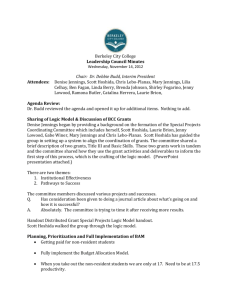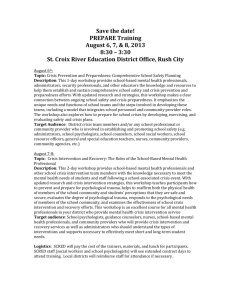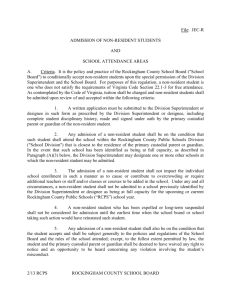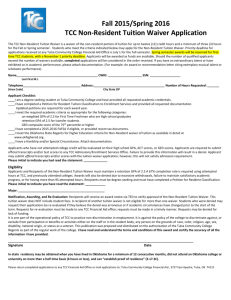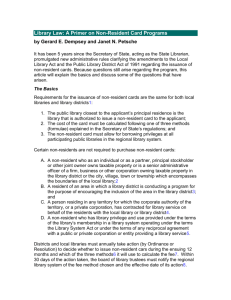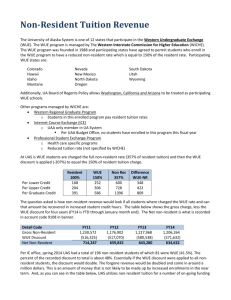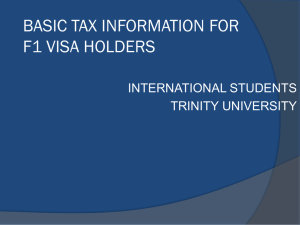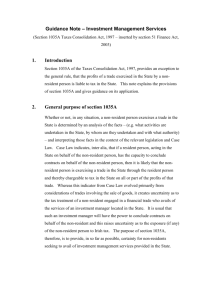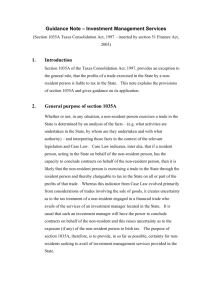To: Superintendents, Business Managers, Building Principals
advertisement
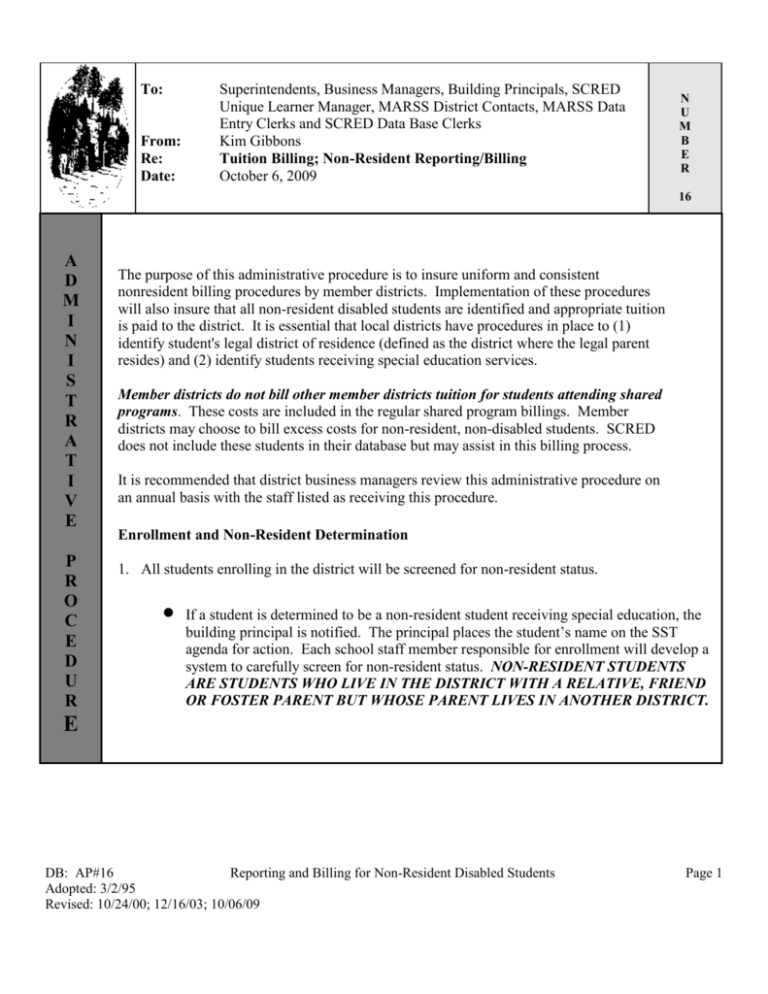
To: From: Re: Date: Superintendents, Business Managers, Building Principals, SCRED Unique Learner Manager, MARSS District Contacts, MARSS Data Entry Clerks and SCRED Data Base Clerks Kim Gibbons Tuition Billing; Non-Resident Reporting/Billing October 6, 2009 N U M B E R 16 A D M I N I S T R A T I V E P R O C E D U R The purpose of this administrative procedure is to insure uniform and consistent nonresident billing procedures by member districts. Implementation of these procedures will also insure that all non-resident disabled students are identified and appropriate tuition is paid to the district. It is essential that local districts have procedures in place to (1) identify student's legal district of residence (defined as the district where the legal parent resides) and (2) identify students receiving special education services. Member districts do not bill other member districts tuition for students attending shared programs. These costs are included in the regular shared program billings. Member districts may choose to bill excess costs for non-resident, non-disabled students. SCRED does not include these students in their database but may assist in this billing process. It is recommended that district business managers review this administrative procedure on an annual basis with the staff listed as receiving this procedure. Enrollment and Non-Resident Determination 1. All students enrolling in the district will be screened for non-resident status. If a student is determined to be a non-resident student receiving special education, the building principal is notified. The principal places the student’s name on the SST agenda for action. Each school staff member responsible for enrollment will develop a system to carefully screen for non-resident status. NON-RESIDENT STUDENTS ARE STUDENTS WHO LIVE IN THE DISTRICT WITH A RELATIVE, FRIEND OR FOSTER PARENT BUT WHOSE PARENT LIVES IN ANOTHER DISTRICT. E DB: AP#16 Reporting and Billing for Non-Resident Disabled Students Adopted: 3/2/95 Revised: 10/24/00; 12/16/03; 10/06/09 Page 1 A D M I N I S T R A T I V E P R O C E D U R E 2. The district special education due process clerk will do a monthly check with school clerks to ascertain non-resident status. 3. Non-resident students being served by member districts are reported to SCRED by the special education due process clerk. 4. Each month the SCRED database clerk will send Acknowledgment of Residency form for each non-resident disabled student being served to appropriate business mangers. These forms are easily generated along with the MARSS Special Education Status Report from the Bill-It program. 5. Upon receipt of the Acknowledgement of Residency form, the serving district business manager sends it to the appropriate resident district. 6. The business manager receives the signed Acknowledgment of Residency. Tuition Billing 1. In March, the SCRED business manager requests updated salary information from district business managers. This is due at SCRED by May 1st. 2. In April, the SCRED tuition clerk will confirm with the district business managers the accuracy of a list of non-resident students. 3. In May, the SCRED tuition clerk will contact district special education staff for caseload information. 4. In June, the SCRED tuition clerk will request MARSS reports for each non-resident student. 5. In July, SCRED will develop interim bills for each district. 6. In August districts will review bills and seek clarification and correction of any issues from the local district special education administrator. 7. In September, each district will send bills out to resident districts. DB: AP#16 Adopted: 3/2/95 Revised: 10/24/00; 12/16/03 Reporting and Billing for Non-Resident Disabled Students Page 2

